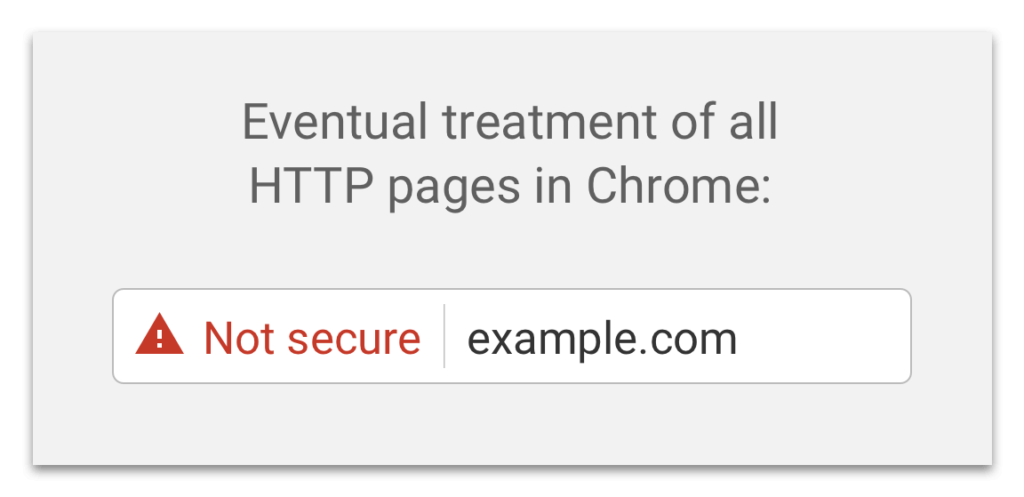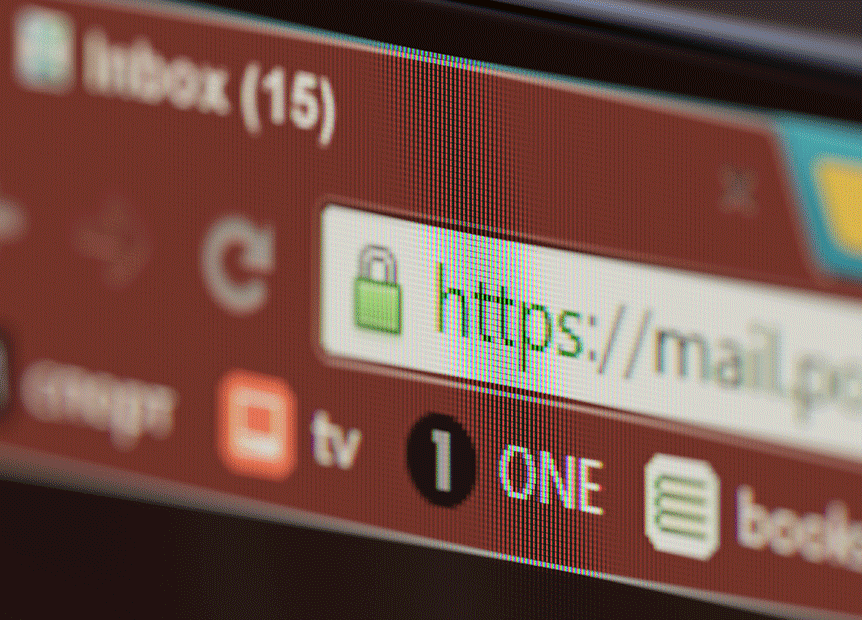Non-HTTPS Websites labelled not secure by Google Chrome. This is an important change that will affect your website…
Have you noticed something different about Google Chrome or Firefox? As of this weekend, any website that is not secured by an SSL certificate has started displaying a ‘this site is not secure’ message. This is particularly prominent when you visit a website’s login page – including the content management login page of your website – and it’s something that will affect the performance of your website in organic search results – as well as the way that visitors will trust your website going forward.
So what is an SSL certificate?
Have you ever noticed how sometimes websites start with “http://” and then sometimes they start with “https://” and have a green padlock nearby? If you have, then you’ve seen the end result of a website being secured by an SSL certificate.
SSL stands for Secure Sockets Layer. Essentially, SSL establishes an encrypted link between your web server and your visitor’s web browser. This ensures that all data passed between the two remains private and secure.
Why is this important for your website?
Starting with the release of Chrome 56 this month, any website that is not running HTTPS will have a message appear in the address bar that says “Not Secure” on pages that collect passwords or credit cards. This is how it will look:

Even pages that do not collect passwords or credit cards are not immune. Clicking the ‘i’ icon to the left of the webpage address brings up a warning message that visitors to your website will see – effectively telling them your website is not secure:

Not only will this be confusing to people visiting your website – but there are other implications…
Google is now using HTTPS as a ranking factor.
Put simply, if a website doesn’t have an SSL certificate, it will rank lower in Google serch results than an equivalent website that does have an SSL certificate.
So, what should you do about it?
The simple answer is to consider securing your website with an SSL certificate. Doing so, will provide a reassuring experience for visitors to your website and you will have a small advantage over competitor websites that don’t have an SSL certificate. But it’s not compulsory – yet!
There are a range of SSL certificates available. Starting from ‘free’ SSL certificates (suitable for non-ecommerce websites that that don’t collect private data, although even these usually incur some form of installation fee) to ‘paid for’ SSL certificates – fees vary dependent upon the validation requirements and the level of warranty being purchased.
Want to know more about implementing SSL on your website? Give us a quick call – 01423 857900 – and we’d be pleased to talk you through your options. Or, complete our ‘request a call back’ form – and we’ll call you!

